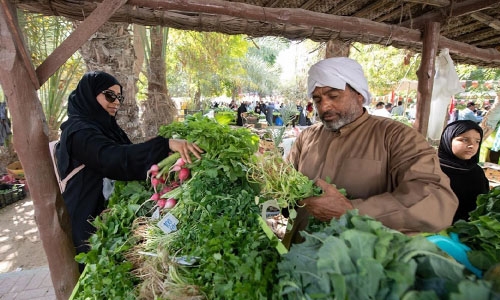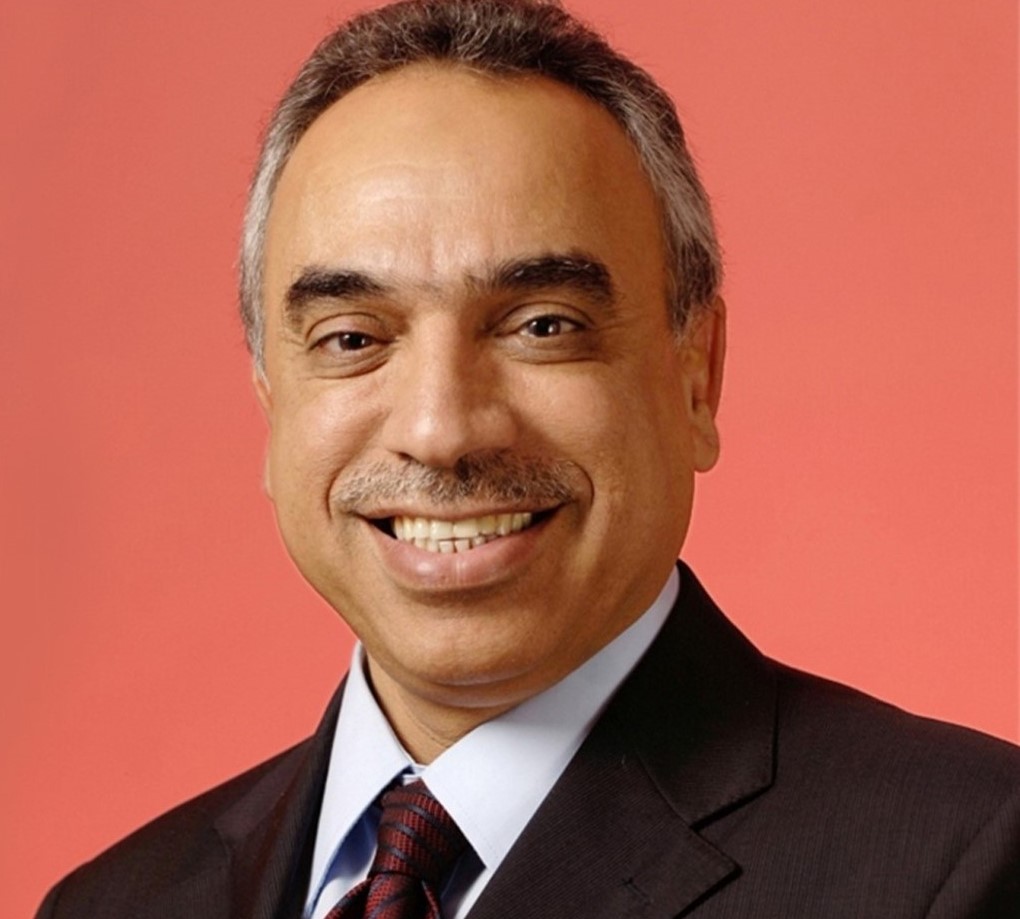3,600 tonnes of vegetables produced using soil-less agriculture in Bahrain
TDT | Manama
The Daily Tribune – www.newsofbahrain.com
Vegetable production through hydroponics in the Kingdom has touched 3,600 tonnes, which translates to a self-sufficiency rate of 10% to 20% and generated 134 jobs, said Works Minister.
Tomatoes, green beans, cucumbers, peppers, melons, and other vegetables are produced locally with over 356 greenhouses on an area of 260,000 square meters, said Essam Khalaf, the Works, Municipalities Affairs, and Urban Planning Minister.
Bahrain, the minister said, aims at raising domestic production through initiatives such as this for agriculture, fish farming and livestock. “Powering them up are private sector partnerships, a key element in boosting initiatives for food security,” the minister added. “The projects are implemented using modern technologies to overcome the scarcities of land and water.”
One of the key projects in these directions is hydroponics, which involves growing plants without soil and using mineral nutrient solutions. “All of the greenhouses are established based on these techniques,” added the minister.
“These initiatives aim at building a generation proficient in modern agricultural production methods, improve the social and living standards, self-sufficiency, national food-security, raise production capacity and strengthen private sector partnership,” the minister stressed.
Fish farming, the minister said, is another area in which modern technologies are proving fruitful in enhancing production. Hammour, Safi or Spinefoots, Sha’am and Sakana are some of the fish varieties under production, the minister said.
20,000 tonnes per year
On the agricultural front, the minister said the local production had reached over 20,000 tonnes per year, of which 418 tonnes are vegetables.
“Around 2.1% of the production is through five existing projects employing hydroponics,” the minister said, adding that the effort is to increase their number to 16. Producing 10,000 more tonnes of vegetables will raise the local production by 50%, he pointed out.
Fish farming
The minister said several sites are set aside for agricultural projects in various governorates of the Kingdom for Agriculture Affairs and Marine Resources as part of the Food Security Project.
“The ministry is also studying five sites for fish farming projects, whose area comes to around 100 hectares. The ministry, Khalaf said, is also continuing efforts to preserve the genetic assets of the Kingdom.
“Through this initiative, the ministry collects and preserve plants, implement research programmes and does scientific documentation of resources according to systems approved by the international institutions.”
“One of the projects under this initiative is the establishments of a laboratory unit in the National Center for Agricultural Laboratories,” the minister said.
Agricultural Incubation Center
The ministry had also established an “Agricultural Incubation Center” project in Hoora Aali to support Bahraini farmers, in cooperation with the National Initiative for the Development of the Agricultural Sector, he added.
The project aims at supporting entrepreneurs in the field of plant production and food processing. “So far, the institute had trained 17 entrepreneurs and 155 people on agricultural systems,” the minister said.
Tax incentives
In this regard, the minister also stressed the importance of boosting investment in the agricultural sector to enhance food security.
Bahrain, the minister said, offers several incentives and facilities to entrepreneurs to attract investments, such as by exempting companies from taxes and reducing custom duties for import and export.
“Bahrain also has supportive economic policies for investments and a legal system guaranteeing investors easy access to commercial licenses,” the minister added.
20 million chicks per year
The minister also shed light on the projects for boosting poultry production with the private sector, such as by the Arab Authority for Agricultural Investment and Delmon Company.
The project aims at increasing the poultry production of Bahrain from 9 million chicks to 20 million chicks per year, which would improve the self-sufficiency ratio from 23-26% to 50- 55%.
The Delmon company project sits on 500,000 square meters of area and includes breeding pens and related services.
Egg production
The ministry also highlighted a project to raise eggs production with the Public Poultry Company. The project will help the Kingdom improve its self-sufficiency rate from 20- 23% to 30-35%.
It sits on an area of 900,000 square meters and has all facilities, including waste treatment. The project, the minister said, is in advanced stages of completion.
Veterinary quarantine expansion
Khalaf said the ministry is also currently working on a veterinary quarantine expansion project. The project, he said, is the first line of defence to address diseases that affect human health and causes economic losses.
The project is instrumental in regulating the movement of animals and animal products through the Kingdom. “This is to limit the transmission of disease that are bacterial, viral and parasitic in nature.”
Accordingly, the project will have its quarantine capacity raised from 5,000 heads of sheep and 600 heads of cow to 15,000 heads of sheep and 1,500 heads of cows.
156,000 heads of cattle
In 2019, Bahrain imported more than 120,000 heads of cattle, an increase of 10,000 head over 2018. The import reached 156,000 heads of cattle in 2020.
The minister stressed that the project to combat animal diseases and improve breeds is one of the main projects of the Livestock agency.
“They are implemented with the help of World Food Organisation, as animal diseases negative affect the food security.” The minister further said the project also aims at eradicating some of the endemic diseases.
The minister also explained that the project aims at the genetical improvement of local strains and preservation and registration of them in the name of the Kingdom, such as Bahraini tomato, after describing these strain genetically
Essam Khalaf, the Works, Municipalities Affairs, and Urban Planning Minister.
Related Posts


